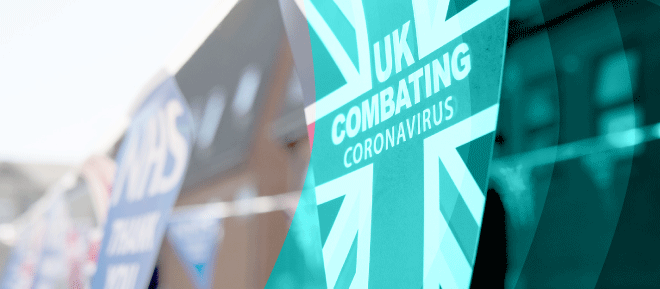
15 Dec Where did the UK go wrong in preparing for the COVID-19 pandemic, and how have preparedness failings tainted public trust among the UK population?
In an October 2021 press release published by The Guardian, the United Kingdom’s initial handling of the COVID-19 pandemic was described as “one of the worst public health failures in UK history, with ministers and scientists taking a “fatalistic” approach that exacerbated the death toll.”
Failings in the UK response to the COVID-19 pandemic can be best understood via a number of events that took place from 2020 to 2022. Examples of these shortcomings in responding to the COVID-19 outbreak in the UK and their implications will be the topics of discussion of this blog post.
The first criticism was the adoption of ‘Herd immunity’. Herd immunity is an epidemiological denomination referring to a significant proportion of the population becoming immune to a contagious disease, hindering additional disease spread. Unlike most European Union member states, which implemented prompt lockdowns, during the first few weeks of the COVID-19 pandemic, the UK government under the administration of former Prime Minister Boris Johnson, decided not to prohibit large get-togethers, in favour of a herd immunity approach.
Instead, in the UK, a “fatalism” about the capability to manage the COVID-19 virus set in amongst government officials and scientific advisors, who aimed to “manage, but not suppress, infection,” explained a 2021 report titled “Coronavirus: lessons learned to date.” The report further adds: “This amounted in practice to accepting that herd immunity by infection was the inevitable outcome.” Furthermore, it was mentioned that “it would, however, be an overstatement to say that the Government and its advisers were promoting the acquisition of COVID-19 to accelerate herd immunity in the population.”
Unfortunately, the adoption of the ‘Herd Immunity’ approach resulted in COVID-19 cases swiftly spreading throughout the UK. This led to thousands of deaths among elderly people and severe pressure on the National Health Service (NHS).
The second UK criticism was not implementing relevant pandemic exercises to best prepare for the COVID-19 pandemic.
According to Professor Sir Ian Boyd, former Chief Scientific Adviser to the UK Government on Food and the Environment, it was discovered that the UK’s biological security strategy, released in 2018 to address the risk of pandemics, was not implemented appropriately. Professor Sir Ian Boyd, who advised the environment department and played an integral role in writing the strategy, explained that insufficient resources were to blame. Other experts also said there was a gap between pandemic planning and action, and that the strategy had been put off.
Furthermore, the NHS is proclaimed to have failed a crucial government evaluation of its capability to respond to a pandemic, though the findings were not made public. Exercise Cygnus, for example, a three-day trial for a pandemic (carried out in October 2016), explored how hospitals and other services would manage in a flu outbreak with an identical morality rate to coronavirus. The exercise was completely relevant to preparing for the COVID-19 outbreak but was not used. According to former Health Secretary Matt Hancock, the reason why the exercise was not performed was because Cygnus modelled an influenza and not any other virus. Despite Cygnus not being “relevant,” Hancock failed to disclose the relevance of exercise Alice, which modelled the Middle East respiratory syndrome (MERS), caused by a coronavirus.
Another criticism can best be understood via the government’s rule breaking parties at Downing Street. Given the nickname of “Partygate,” Boris Johnson and his officials held a number of parties when UK lockdowns were in place. The revelation brought about an internal inquiry and a criminal investigation resulting in over 120 police fines, including fines for Johnson, his wife, Carrie Johnson, and former Treasury now turned Prime Minister, Rishi Sunak.
As one can imagine, the afore-mentioned discoveries have tainted public trust in UK government and its handling of the pandemic.
With regard to the poor implementation of appropriate pandemic exercises, Dr Moosa Quereshi, an NHS haematology consultant, organised a campaign for transparency into NHS preparedness for a pandemic in 2021. In response to pandemic exercise negligence, Mr Quereshi said that it is “absolutely crazy” that such vital reports were kept secret. One of his many concerns was that of Exercise Cygnus, which explicitly tested how the UK’s health system would respond to an influenza pandemic. At the time of campaigning, Mr Quereshi said that during the early stages of the COVID-19 pandemic, “nobody seemed to know what happened during Exercise Cygnus and what the outcome was. It went everything I’d been taught during medical training about the importance of openness and shared learning.”
Touching on the “Partygate” incident in further detail, a number of press releases have already indicated that the parties have and will weaken trust in COVID-19 guidance. In a 2022 press release, Dr Simon Williams, Senior Lecturer in People and Organisation at Swansea University, said: “When allegations of last year’s Downing Street Christmas parties broke, a survey found that one-in-ten people said they wouldn’t follow any new household mixing rules this year, precisely because some in government hadn’t followed their own rules last year.”
Since research has shown that trust is one of the most crucial predictors of whether people abide to COVID-19 rules and advice, the UK government must consider a number of important steps to regain the UK population’s trust, especially if another pandemic is to break out in the future. As stated by a number of critics, the restoration of trust should start off with investing in, and engaging with, rapid anthropological research, demonstrating to the population that it is taking into account and answering to their beliefs and fears.
Author: Zainab Mehdi, Trilateral Research
